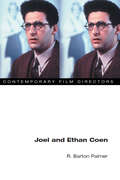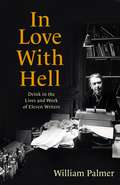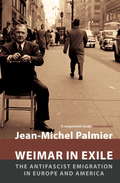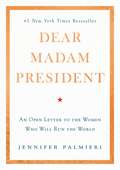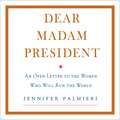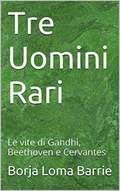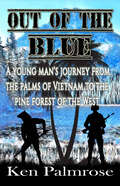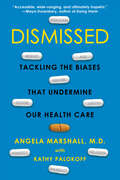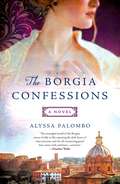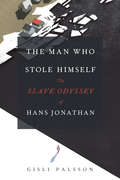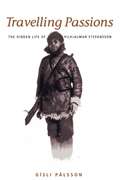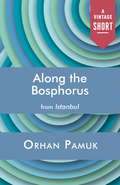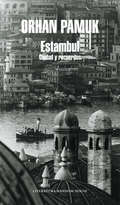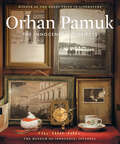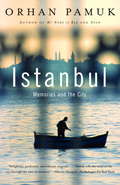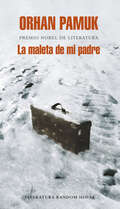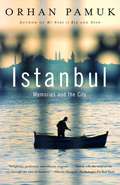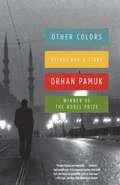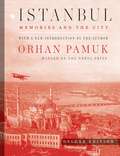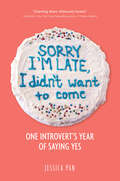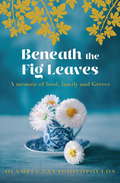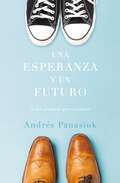- Table View
- List View
Joel and Ethan Coen (Contemporary Film Directors)
by R. Barton PalmerWith landmark films such as Fargo, O Brother Where art Thou?, Blood Simple, and Raising Arizona, the Coen brothers have achieved both critical and commercial success. Proving the existence of a viable market for "small" films that are also intellectually rewarding, their work has exploded generic conventions amid rich webs of transtextual references. R. Barton Palmer argues that the Coen oeuvre forms a central element in what might be called postmodernist filmmaking. Mixing high and low cultural sources and blurring genres like noir and comedy, the use of pastiche and anti-realist elements in films such as The Hudsucker Proxy and Barton Fink clearly fit the postmodernist paradigm. Palmer argues that for a full understanding of the Coen brothers' unique position within film culture, it is important to see how they have developed a new type of text within general postmodernist practice that Palmer terms commercial/independent. Analyzing their substantial body of work from this "generic" framework is the central focus of this book.
In Love with Hell: Drink in the Lives and Work of Eleven Writers
by William Palmer'Sympathetic and wonderfully perceptive . . . a heartbreaking read'NICK COHEN, Critic'Wise, witty and empathetic . . . outstanding'JIM CRACE'A fascinating treatment of the age-old problem of writers and drink which displays the same subtle qualities as William Palmer's own undervalued novels'D. J. TAYLORAn 'enjoyable exploration of an enduringly fascinating subject . . . [Palmer] is above all a dispassionate critic, and is always attentive to, and unwaveringly perceptive about the art of his subjects as well as their relationship with alcohol . . . [his] treatment is even-handed and largely without judgement. He tries to understand, without either condoning or censuring, the impulses behind often reprehensible behaviour'SOUMYA BHATTACHARYA, New Statesman'A vastly absorbing and entertaining study of this ever-interesting subject'ANDREW DAVIES, screenwriter and novelist'In Love with Hell is a fascinating and beautifully written account of the lives of eleven British and American authors whose addiction to alcohol may have been a necessary adjunct to their writing but ruined their lives. Palmer's succinct biographies contain fine descriptions of the writers, their work and the times they lived in; and there are convincing insights into what led so many authors to take to drink.'PIERS PAUL READWhy do some writers destroy themselves by drinking alcohol? Before our health-conscious age it would be true to say that many writers drank what we now regard as excessive amounts. Graham Greene, for instance, drank on a daily basis quantities of spirits and wine and beer most doctors would consider as being dangerous to his health. But he was rarely out of control and lived with his considerable wits intact to the age of eighty-six. W. H. Auden drank the most of a bottle of spirits a day, but also worked hard and steadily every day until his death. Even T. S. Eliot, for all his pontifical demeanour, was extremely fond of gin and was once observed completely drunk on a London Tube station by a startled friend. These were not writers who are generally regarded as alcoholics. 'Alcoholic' is, in any case, a slippery word, as exemplified by Dylan Thomas's definition of an alcoholic as 'someone you dislike who drinks as much as you.' The word is still controversial and often misunderstood and misapplied. What acclaimed novelist and poet William Palmer's book is interested in is the effect that heavy drinking had on writers, how they lived with it and were sometimes destroyed by it, and how they described the whole private and social world of the drinker in their work.He looks at Patrick Hamilton ('the feverish magic that alcohol can work'); Jean Rhys ('As soon as I sober up I start again'); Charles Jackson ('Delirium is a disease of the night'); Malcolm Lowry ('I love hell. I can't wait to go back there'); Dylan Thomas ('A womb with a view'); John Cheever ('The singing of the bottles in the pantry'); Flann O'Brien ('A pint of plain is your only man'); Anthony Burgess ('Writing is an agony mitigated by drink'); Kingsley Amis ('Beer makes you drunk'); Richard Yates ('The road to Revolutionary Road'); and Elizabeth Bishop ('The writer's writer's writer').
In Love with Hell: Drink in the Lives and Work of Eleven Writers
by William Palmer'Sympathetic and wonderfully perceptive . . . a heartbreaking read'NICK COHEN, Critic'Wise, witty and empathetic . . . outstanding'JIM CRACE'A fascinating treatment of the age-old problem of writers and drink which displays the same subtle qualities as William Palmer's own undervalued novels'D. J. TAYLOR'A vastly absorbing and entertaining study of this ever-interesting subject'ANDREW DAVIES, screenwriter and novelist'In Love with Hell is a fascinating and beautifully written account of the lives of eleven British and American authors whose addiction to alcohol may have been a necessary adjunct to their writing but ruined their lives. Palmer's succinct biographies contain fine descriptions of the writers, their work and the times they lived in; and there are convincing insights into what led so many authors to take to drink.'PIERS PAUL READWhy do some writers destroy themselves by drinking alcohol? Before our health-conscious age it would be true to say that many writers drank what we now regard as excessive amounts. Graham Greene, for instance, drank on a daily basis quantities of spirits and wine and beer most doctors would consider as being dangerous to his health. But he was rarely out of control and lived with his considerable wits intact to the age of eighty-six. W. H. Auden drank the most of a bottle of spirits a day, but also worked hard and steadily every day until his death. Even T. S. Eliot, for all his pontifical demeanour, was extremely fond of gin and was once observed completely drunk on a London Tube station by a startled friend. These were not writers who are generally regarded as alcoholics. 'Alcoholic' is, in any case, a slippery word, as exemplified by Dylan Thomas's definition of an alcoholic as 'someone you dislike who drinks as much as you.' The word is still controversial and often misunderstood and misapplied. What acclaimed novelist and poet William Palmer's book is interested in is the effect that heavy drinking had on writers, how they lived with it and were sometimes destroyed by it, and how they described the whole private and social world of the drinker in their work.He looks at Patrick Hamilton ('the feverish magic that alcohol can work'); Jean Rhys ('As soon as I sober up I start again'); Charles Jackson ('Delirium is a disease of the night'); Malcolm Lowry ('I love hell. I can't wait to go back there'); Dylan Thomas ('A womb with a view'); John Cheever ('The singing of the bottles in the pantry'); Flann O'Brien ('A pint of plain is your only man'); Anthony Burgess ('Writing is an agony mitigated by drink'); Kingsley Amis ('Beer makes you drunk'); Richard Yates ('The road to Revolutionary Road'); and Elizabeth Bishop ('The writer's writer's writer').
Weimar in Exile: The Antifascist Emigration in Europe and America
by Jean Michel PalmierA magisterial history of the artists and writers who left Weimar when the Nazis came to powerIn 1933 thousands of intellectuals, artists, writers, militants and other opponents of the Nazi regime fled Germany. They were, in the words of Heinrich Mann,"the best of Germany," refusing to remain citizens in this new state that legalized terror and brutality.Exiled across the world, they expressed the fight against Nazism in prose, poetry, painting, architecture, film and theater. Weimar in Exile follows these lives, from the rise of national socialism to the return to their ruined homeland, retracing their stories, struggles, setbacks and rare victories.The dignity in exile of Walter Benjamin, Ernst Bloch, Bertolt Brecht, Alfred Doblin, Hans Eisler, Heinrich Mann, Thomas Mann, Anna Seghers, Ernst Toller, Stefan Zweig and many others provides counterpoint to the story of Germany under the Nazis.From the Trade Paperback edition.
Dear Madam President: An Open Letter to the Women Who Will Run the World
by Jennifer Palmieri<P>DEAR MADAM PRESIDENT is an empowering letter from former Hillary Clinton Communications Director Jennifer Palmieri to the first woman president, and by extension, to all women working to succeed in any field. By using lessons learned during her experiences with Hillary Clinton, President Obama, and Elizabeth Edwards--to name a few--Palmieri through each chapter creates a forward-thinking framework of inspirational and practical advice for all women everywhere--from boardrooms to living rooms--who are determined to seize control of their lives, their workplaces, and their country. <P>DEAR MADAM PRESIDENT will turn the results of the 2016 election into something incredibly empowering for future female leaders and independent thinkers everywhere. As a country, we haven't wrapped our heads around what it should look like for a woman to be in the job of President. Our only models are men. This of course was seen during the Hillary Clinton campaign, and no one knows this better than Jennifer Palmieri. <P>While wildly disappointed by the outcome of the election, Palmieri optimistically argues in the book that the Clinton candidacy and all she experienced on the campaign trail--confusion, admiration, hate, love, acceptance, rejection--can now open the country up to reimagining women in leadership roles. And that is what Palmieri takes on in this book--redefining expectations for women looking to lead and creating a blueprint for women candidates and leaders to follow. <P><b>A New York Times Bestseller</b>
Dear Madam President: An Open Letter to the Women Who Will Run the World
by Jennifer PalmieriDEAR MADAM PRESIDENT is an empowering letter from former White House Communications Director Jennifer Palmieri to the first woman president, and by extension, to all women working to succeed in any field. By using lessons learned during her experiences with Hillary Clinton, President Obama, and Elizabeth Edwards--to name a few--Palmieri through each chapter creates a forward-thinking framework of inspirational and practical advice for all women everywhere--from boardrooms to living rooms--who are determined to seize control of their lives, their workplaces, and their country. DEAR MADAM PRESIDENT will turn the results of the 2016 election into something incredibly empowering for future female leaders and independent thinkers everywhere.We haven't wrapped our heads around what it should look like for a woman to be in the job of President. Our only models are men. This of course was seen during the Hillary Clinton campaign, and no one knows this better than Jennifer Palmieri. While wildly disappointed by the outcome of the election, Palmieri optimistically argues in the book that the Clinton candidacy and all she experienced on the campaign trail--confusion, admiration, hate, love, acceptance, rejection--can now open the country up to reimagining women in leadership roles. And that is what Palmieri takes on in this book--redefining expectations for women looking to lead and creating a blueprint for women candidates and leaders to follow.(P)2018 Hachette Audio
Tre Uomini Rari. Le vite di Gandhi, Beethoven e Cervantes.
by Loris Palmitesta Borja Loma BarrieRacconto sull'Indipendenza dell'India, Sulla Spagna nel periodo Barocco e sull'Austria Assolutista. Biografia storica. Biografia dell'artifice dello Stato indiano, del compositore classicista e dell'autore del Quijote.
Out of the Blue: A Young Man's Journey from the Palms of Vietnam to the Pine Forest of the West
by Ken Palmrose<p>A novel of one man’s transition from Vietnam War soldier to a new career in forest management—the characters, the dangers, the memories.<p> <p>Ben hops aboard the Greyhound on a journey from his hometown of Sisu Bay on the coast of Oregon to one of the most rural areas of the West. Drafted into the Army and a fourteen-month veteran of the Vietnam War, he is glad to begin his career in a western national forest, but the dangers that he will face far surpass anything he has seen.<p> <p>You will meet Ben’s crew, city slickers, dudes, and greenhorns, from all over the US who are thrown in with some locals whose families worked this same land for decades. Ben’s journey with this oddball group will test him, as this will be a different journey involving different battles. Ben and his new buddies will experience their own personal wars against forest fires where close calls are the norm, and murder accusations which are not, along with other life-changing events that only the end of the sixties could bring.<p> <p>Ben’s story is a journey, but also a reminder of the nightmares and daydreams of being in a war zone; some bad, some good, but memories that are forever lurking in the mind’s shadows.<p>
Dismissed: Tackling the Biases That Undermine our Health Care
by Kathy Palokoff Angela MarshallFacts—women in pain are much more likely than men to receive prescriptions for sedatives rather than pain medication; Black women are more than three times more likely than white women to die of childbirth-related causes. Whether it&’s age, body size, sexual orientation, or other cultural factors, bias in healthcare is an uncomfortable truth. In this first-ever book on the subject written from the author&’s unique perspective of being a doctor, a woman, and Black, Dr. Angela Marshall, a contributing health expert on CNN, Fox5 News and Let&’s Talk Lives, and repeatedly named a &“Top Doctor&” by Washingtonian magazine, candidly addresses the life-and-death issue, sharing personal and patient stories and fresh, pragmatic solutions. Have you ever felt you were treated differently by a medical professional due to your skin color, age, ethnicity, gender, or for any other reason? If so, you are far from alone. Here&’s the uncomfortable truth: Race, ethnicity, gender, sexual orientation, age, body size, and other cultural factors have a significant bearing on whether you will be diagnosed and treated correctly. Health-care providers and their patients are human, and all humans have unconscious biases that affect how we listen, observe, and act. Bias impacts patients when they are at their most vulnerable. Health-care bias can mean the difference not just between suffering and relief, but between life and death. For the first time, an author with the unique perspective of being one of America&’s top doctors, a woman, and Black, candidly addresses the issue of bias in health care, sharing personal and patient stories and pragmatic solutions. Dr. Angela Marshall, repeatedly named a &“Top Doctor&” by Washingtonian magazine, draws on extensive research, poignant stories from some of the thousands of patients she has treated, and her own compelling personal experience, to examine the bias from both patients&’ and health‑care providers&’ points of view. She offers a bold blueprint for change, filled with fresh solutions that can help everyone in our health-care system. Dismissed not only explains what so many people feel so profoundly—that the system is working against them. It also reveals what health-care practitioners, patients, and society in general can do to make it right.
The Borgia Confessions: A Novel
by Alyssa Palombo'Under Palombo’s skillful hand, the entangled world of the Borgias comes vividly to life, exposing the dark facets of class structure and the all-consuming greed that comes with ambition--and love." - Heather Webb, internationally bestselling author of Last Christmas in Paris and Meet Me in Monaco During the sweltering Roman summer of 1492, Rodrigo Borgia has risen to power as pope. Rodrigo’s eldest son Cesare, forced to follow his father into the church and newly made the Archbishop of Valencia, chafes at his ecclesiastical role and fumes with jealousy and resentment at the way that his foolish brother has been chosen for the military greatness he desired.Maddalena Moretti comes from the countryside, where she has seen how the whims of powerful men wreak havoc on the lives of ordinary people. But now, employed as a servant in the Vatican Palace, she cannot help but be entranced by Cesare Borgia’s handsome face and manner and finds her faith and conviction crumbling in her want of him.As war rages and shifting alliances challenge the pope’s authority, Maddalena and Cesare's lives grow inexplicably entwined. Maddalena becomes a keeper of dangerous Borgia secrets, and must decide if she is willing to be a pawn in the power games of the man she loves. And as jealousy and betrayal threaten to tear apart the Borgia family from within, Cesare is forced to reckon with his seemingly limitless ambition.Alyssa Palombo's captivating new novel, The Borgia Confessions, is a story of passion, politics, and class, set against the rise and fall of one of Italy's most infamous families--the Borgias.
The Man Who Stole Himself: The Slave Odyssey of Hans Jonathan
by Gisli PalssonThe island nation of Iceland is known for many things--majestic landscapes, volcanic eruptions, distinctive seafood--but racial diversity is not one of them. So the little-known story of Hans Jonathan, a free black man who lived and raised a family in early nineteenth-century Iceland, is improbable and compelling, the stuff of novels. In The Man Who Stole Himself, Gisli Palsson lays out the story of Hans Jonathan (also known as Hans Jónatan) in stunning detail. Born into slavery in St. Croix in 1784, Hans was taken as a slave to Denmark, where he eventually enlisted in the navy and fought on behalf of the country in the 1801 Battle of Copenhagen. After the war, he declared himself a free man, believing that he was due freedom not only because of his patriotic service, but because while slavery remained legal in the colonies, it was outlawed in Denmark itself. He thus became the subject of one of the most notorious slavery cases in European history, which he lost. Then Hans ran away--never to be heard from in Denmark again, his fate unknown for more than two hundred years. It's now known that Hans fled to Iceland, where he became a merchant and peasant farmer, married, and raised two children. Today, he has become something of an Icelandic icon, claimed as a proud and daring ancestor both there and among his descendants in America. The Man Who Stole Himself brilliantly intertwines Hans Jonathan's adventurous travels with a portrait of the Danish slave trade, legal arguments over slavery, and the state of nineteenth-century race relations in the Northern Atlantic world. Throughout the book, Palsson traces themes of imperial dreams, colonialism, human rights, and globalization, which all come together in the life of a single, remarkable man. Hans literally led a life like no other. His is the story of a man who had the temerity--the courage--to steal himself.
Travelling Passions: The Hidden Life of Vilhjalmur Stefansson
by Gisli PalssonVilhjalmur Stefansson has long been known for his groundbreaking work as an anthropologist and expert on Arctic peoples. His three expeditions to the Canadian Arctic in the early 1900s, as well as his expertise in northern anthropology, helped create his public image as an heroic, Hemingway-esque figure in the annals of twentieth-century exploration. But the emotional and private life of Stefansson the man have remained hidden, until now. New evidence of this other life has recently been discovered: a collection of love letters between Stefansson and his fiance Orpha Cecil Smith were found in a New Hampshire flea market; Stefansson's field diaries have revealed elegant essays and insightful commentary on Inupiat society; baptismal records have revealed that Stefansson had a son, Alex, with his informant and guide, Fanny Pannigabluk; and through Web searches and a private detective, Palsson found and conducted interviews with the descendents of both Cecil Smith and Alex Stefansson. Travelling Passions sheds new light on Stefanssonís life and work, focussing on the tension between his private life and the theories that brought his name to the halls of fame. Palsson draws a clear, vivid, and in many ways unexpected picture of the mythical figure of Stefansson.
Along the Bosphorus (A Vintage Short)
by Orhan PamukA Vintage Shorts Travel Selection The Nobel Prize-winning novelist Orhan Pamuk reminisces on growing up on the banks of the mysterious Bosphorus in Istanbul. From the ghostly yalis, splendid waterside mansions built by the great Ottoman families during the eighteenth and nineteenth centuries, to the crowds of vessels--Russian frigates, rickety fishing boats, and ferries--that plied its waters, Pamuk takes readers on a tour of the great river. A selection from the shimmering and evocative Istanbul: Memories and the City, "Along the Bosphorus" is the essential guide to the city's watery way. An eBook short.
Estambul: Ciudad y recuerdos
by Orhan PamukEl hermoso retrato de una ciudad y de una vida -la ciudad de Estambul y vida del Premio Nobel de Literatura Orhan Pamuk-, ambas fascinantes por igual. Estambul es un retrato, en ocasiones panorámico y en otras íntimo y personal, de una de las ciudades más fascinantes de la Europa que mira a Asia. Pero es también una autobiografía, la del propio Orhan Pamuk. La historia da comienzo con el capítulo de su infancia, donde Pamuk nos habla sobre su excéntrica familia y su vida en un polvoriento apartamento -«los apartamentos Pamuk», así los denomina- en el centro de la ciudad. El autor recuerda que fue en aquellos días lejanos cuando tomó conciencia de que le había tocado vivir en un espacio plagado de melancolía: residente de un lugar en ruinas que arrastra un pasado glorioso y que intenta hacerse un hueco en la «modernidad». Viejos y hermosos edificios en ruinas, estatuas valiosas y mutantes, villas fantasmagóricas y callejuelas secretas donde, por encima de todo, destaca el terapéutico río Bósforo, que en la memoria del narrador es vida, salud y felicidad. Esta elegía sirve para que el autor introduzca a pintores, escritores y célebres asesinos, a través de cuyos ojos el narrador describe la ciudad. Reseña:«Estambul es un libro escrito por un hombre enamorado de su ciudad.»Alberto Manguel
The Innocence of Objects
by Orhan PamukThe Nobel Prize winner&’s catalog of his Istanbul museum is like &“wandering past the illuminated windows of an arcade. . . . This book spills over with pleasure&”(The New York Times). The culmination of decades of omnivorous collecting, Orhan Pamuk&’s Museum of Innocence in Istanbul uses his novel of lost love, The Museum of Innocence, as a departure point to explore the city of his youth. In The Innocence of Objects, Pamuk&’s catalog of this remarkable museum, he writes about things that matter deeply to him: the psychology of the collector, the proper role of the museum, the photography of old Istanbul (illustrated with Pamuk&’s superb collection of haunting photographs and movie stills), and of course the customs and traditions of his beloved city. The book&’s imagery is equally evocative, ranging from the ephemera of everyday life to the superb photographs of Turkish photographer Ara Güler. Combining compelling visual images and writing, The Innocence of Objects is an original work of art and literature.
Istanbul: Memories And The City (Vintage International)
by Orhan PamukA shimmering evocation, by turns intimate and panoramic, of one of the world's great cities, by its foremost writer. Orhan Pamuk was born in Istanbul and still lives in the family apartment building where his mother first held him in her arms. His portrait of his city is thus also a self-portrait, refracted by memory and the melancholy-or hüzün- that all Istanbullus share: the sadness that comes of living amid the ruins of a lost empire.With cinematic fluidity, Pamuk moves from his glamorous, unhappy parents to the gorgeous, decrepit mansions overlooking the Bosphorus; from the dawning of his self-consciousness to the writers and painters-both Turkish and foreign-who would shape his consciousness of his city. Like Joyce's Dublin and Borges' Buenos Aires, Pamuk's Istanbul is a triumphant encounter of place and sensibility, beautifully written and immensely moving.From the Trade Paperback edition.
La maleta de mi padre
by Orhan Pamuk«¿Por qué escribe? ¡Escribo porque me sale de dentro!»Orhan Pamuk El premio Nobel de literatura Orhan Pamuk nos habla en estos discursos de su amor por la literatura. Orhan Pamuk fue galardonado con el Premio Nobel de Literatura en 2006. En la entrega oficial del galardón, Pamuk leyó «La maleta de mi padre», un emocionante discurso que habla de la naturaleza de la escritura, del amor a los libros y del propósito de la literatura. Acompañan a este discurso otros dos textos igualmente pronunciados con motivo de la recepción de premios: «El autor implícito», discurso que leyó en abril de 2006 al recibir el premio Puterbaugh, otorgado por la revista norteamericana World Literature, trata de la psicología del autor, de la aventura que supone ser escritor y de la necesidad de serlo. «En Kars y en Frankfurt», discurso pronunciado al recibir el Premio de la Paz de la Unión de Libreros Alemanes en 2005, estudia la posibilidad que tiene el novelista de ponerse en el lugar de otros y las consecuencias políticas de una capacidad tan humana. «Dos años antes de morir, mi padre me entregó una pequeña maleta llena con sus notas, manuscritos y cuadernos.»Orhan Pamuk
Istanbul: Memories and the City
by Orhan Pamuk Maureen FreelyThe author reflects on his childhood in Istanbul.
Other Colors: Essays and a Story
by Orhan Pamuk Maureen FreelyThis is a collection of essays about the author and his life in Turkey. Pamuk won the Nobel Prize for Literature in 2006.
Istanbul (Deluxe Edition): Memories and the City
by Orhan Pamuk Ureen FreelyFrom the Nobel Prize-winning author of My Name Is Red and Snow, a large-format, deluxe, collectible edition of his beloved memoir about life in Istanbul, with more than 200 added illustrations and a new introduction.Orhan Pamuk was born in Istanbul and still lives in the family apartment building where his mother first held him in her arms. His portrait of his city is thus also a self-portrait, refracted by memory and the melancholy--or hüzün--that all Istanbullus share: the sadness that comes of living amid the ruins of a lost empire. With cinematic fluidity, Pamuk moves from the lives of his glamorous, unhappy parents to the gorgeous, decrepit mansions overlooking the Bosphorus; from the dawning of his self-consciousness to the writers and painters--both Turkish and foreign--who would shape his consciousness of his city. Like Joyce's Dublin and Borges' Buenos Aires, Pamuk's Istanbul is a triumphant encounter of place and sensibility, beautifully written and immensely moving.
Sorry I'm Late, I Didn't Want to Come: One Introvert's Year of Saying Yes
by Jessica PanAn introvert spends a year trying to live like an extrovert with hilarious results and advice for readers along the way.What would happen if a shy introvert lived like a gregarious extrovert for one year? If she knowingly and willingly put herself in perilous social situations that she’d normally avoid at all costs? Writer Jessica Pan intends to find out. With the help of various extrovert mentors, Jessica sets up a series of personal challenges (talk to strangers, perform stand-up comedy, host a dinner party, travel alone, make friends on the road, and much, much worse) to explore whether living like an extrovert can teach her lessons that might improve the quality of her life. Chronicling the author’s hilarious and painful year of misadventures, this book explores what happens when one introvert fights her natural tendencies, takes the plunge, and tries (and sometimes fails) to be a little bit braver.“This book is a rollicking, hilarious delight. Jessica Pan’s sense of humor as she stumbles (and sometimes triumphs) in a world of extroverts is sure to appeal to introverts everywhere. The only downside is that her book about going out and meeting new people is sure to make you stay home until you finish it.” —Jennifer Wright, author of Get Well Soon and Killer Fashion“Charming. Brave. Hilariously honest. Whether you buy this book for yourself, your favorite introvert, or the chatty friend you’re hoping to shut up for a few solid hours, you can’t go wrong with Jessica Pan’s revealing and delightful memoir.” —David Litt, New York Times–bestselling author of Thanks, Obama
Sorry I'm Late, I Didn't Want to Come: One Introvert's Year of Saying Yes
by Jessica PanAn introvert spends a year trying to live like an extrovert with hilarious results and advice for readers along the way.What would happen if a shy introvert lived like a gregarious extrovert for one year? If she knowingly and willingly put herself in perilous social situations that she’d normally avoid at all costs? Writer Jessica Pan intends to find out. With the help of various extrovert mentors, Jessica sets up a series of personal challenges (talk to strangers, perform stand-up comedy, host a dinner party, travel alone, make friends on the road, and much, much worse) to explore whether living like an extrovert can teach her lessons that might improve the quality of her life. Chronicling the author’s hilarious and painful year of misadventures, this book explores what happens when one introvert fights her natural tendencies, takes the plunge, and tries (and sometimes fails) to be a little bit braver.“This book is a rollicking, hilarious delight. Jessica Pan’s sense of humor as she stumbles (and sometimes triumphs) in a world of extroverts is sure to appeal to introverts everywhere. The only downside is that her book about going out and meeting new people is sure to make you stay home until you finish it.” —Jennifer Wright, author of Get Well Soon and Killer Fashion“Charming. Brave. Hilariously honest. Whether you buy this book for yourself, your favorite introvert, or the chatty friend you’re hoping to shut up for a few solid hours, you can’t go wrong with Jessica Pan’s revealing and delightful memoir.” —David Litt, New York Times–bestselling author of Thanks, Obama
Beneath the Fig Leaves: A Memoir Food And Family
by Olympia PanagiotopoulosIn 1955, in a village in Greece that was marred by war and poverty, Giannoula and Fotios Panagiotopoulos dreamed of providing a better life for their children. Australia, it was rumoured, was a land of opportunity where hard work brought reward. Leaving behind family and friends, they set off to make a new home on the other side of the world. Half a lifetime later, under the shade of a fig tree and in the dappled Melbourne sunlight, Giannoula regales her youngest daughter, Olympia, with stories of her homeland and journey. An evocative exploration of the ties that bind, Beneath the Fig Leaves weaves an irresistible tapestry of family, food and history to stir the heart and senses.
Una esperanza y un futuro: Sé más próspero que tus padres
by Andrés PanasiukEn este indispensable libro, el Dr. Andrés Panasiuk abarca temas de alta relevancia para el éxito de los jóvenes tales como:Los problemas más comunes a que se enfrentan.Identidad.Principios y valores.Como elegir la carrera y ser exitoso en el trabajo.La importancia del orden.El primer auto.La libertad y cómo evitar caer en la esclavitud de las deudas.Consejos pre-matrimoniales.La generosidad.Las decisiones que toman los jóvenes hoy tendrán fuertes repercusiones por el resto de su vida y el Dr. Panasiuk enseña en este libro, valiosas lecciones y muestra cómo tomar sabias decisiones económicas entre todas las oportunidades que se abren cada día. 12 essential lessons for your generation to be more prosperous than the last In this key book, Dr. Andrés Panasiuk broaches topics highly relevant for the success of young people today.
Franklin Delano Roosevelt for Kids: His Life and Times with 21 Activities
by Richard PanchykFranklin Delano Roosevelt's enduring legacy upon the history, culture, politics, and economics of the United States is introduced to children in this engaging activity book. Kids will learn how FDR, a member of one of the founding families of the New World, led the nation through the darkest days of the Great Depression and World War II as 32nd U.S. President. This book examines the Roosevelt family--including famous cousin Teddy Roosevelt and First Lady Eleanor Roosevelt--as well as FDR's early political career and subsequent 12 years in office during some of the most fascinating and turbulent times in American history. Interspersed throughout are first-hand accounts from the people who knew FDR and remember him well. Children will also learn how his personal struggles with polio and his physical disability strengthened FDR's compassion and resolve. In addition, kids will explore Roosevelt's entire era through such hands-on activities as staging a fireside chat, designing a WPA-style mural, sending a double encoded message, hosting a swing dance party, and participating in a political debate.
